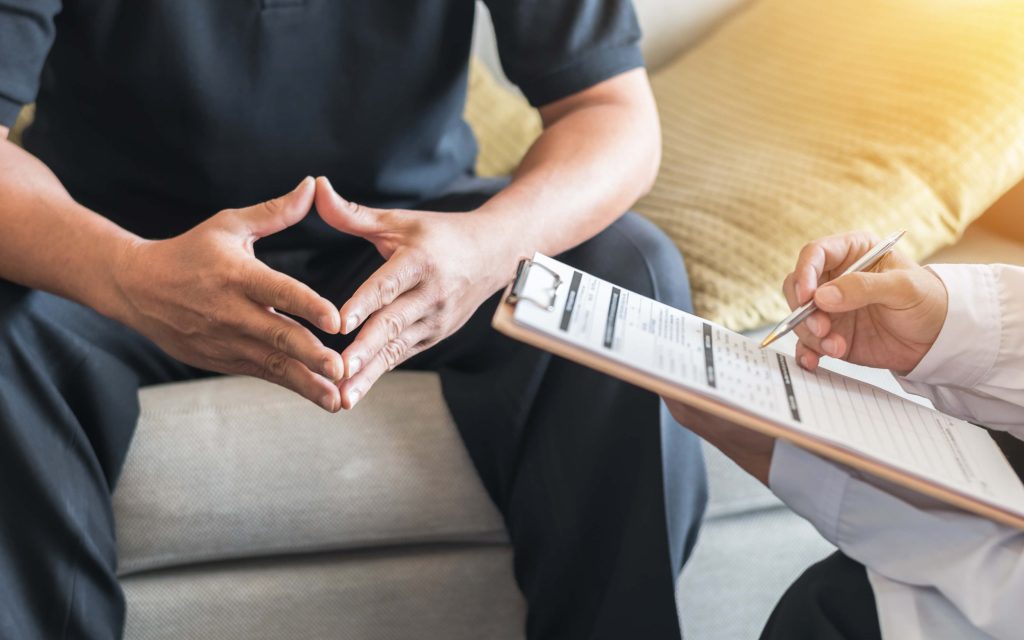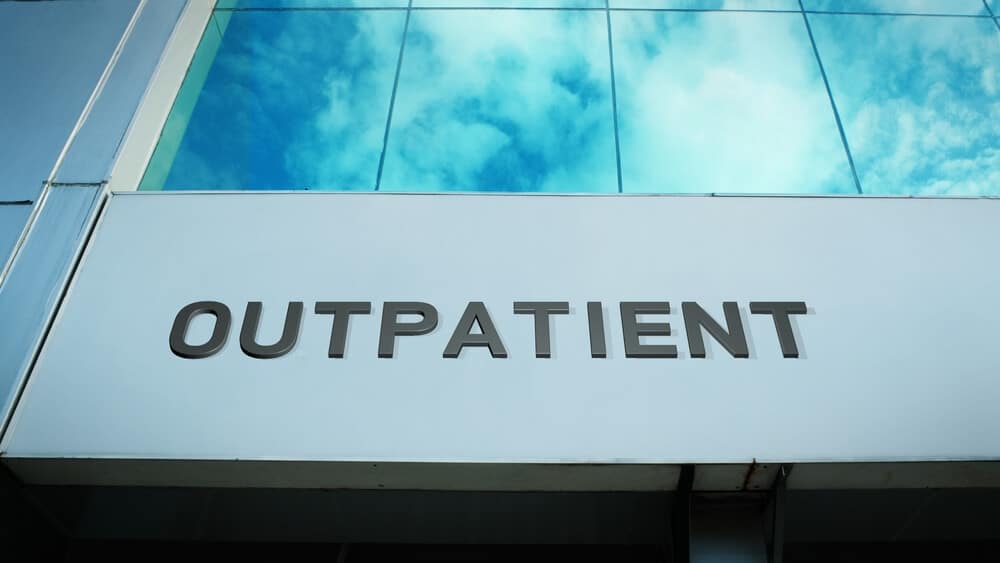Why Are We Afraid of Therapy?
Starting therapy is a major step, and it might need lots of courage and time. Whether you have been experiencing anxiety, depression, feeling burned out at work, or navigating relationship, therapy can be effective for building resilience and improving your mental health. Unfortunately finding a therapy that works for your schedule, budget, and personal goals can be challenging. Also, the fear of being stigmatized can keep us from seeking treatment.

How To Make Therapy Less Daunting.
Therapy is a form of medical treatment, that helps you tackle troubling emotions, thoughts, behaviors, or life situations. It is also known as psychotherapy, talk therapy, or counseling.
Provided should be provided by trained professionals only: psychiatrists, psychologists, social workers, or licensed counselors. Therapy sessions refer to structured meetings between a provider and a patient, whether online or in person with the goal of improving some aspect of their life. Psychotherapy encompasses many types of treatment and is practiced by a range of clinicians using a variety of strategies. The critical aspect is that the patient works collaboratively with the therapist and can identify improvement and positive change over time.
Most therapies in wide use have been well-tested and deemed effective. Though it may at first feel difficult to seek out therapy—especially for those of low-income or without comprehensive insurance—the benefits of successful therapy are literally life-changing.
Therapy Is For Everyone.
Therapy is not only for people who have been diagnosed with severe mental health issues. It is for everyone. Therapy can be beneficial if you are puzzled about how to navigate difficult life circumstances and needs someone to talk to.
Accept That Therapy Is Not a Sign Of Weakness.
Free yourself from the stigma, that can be associated with seeking mental health care. Starting therapy is a sign that you care about your health and well-being. It takes some bravery and it is something to be proud of, not something to be ashamed of.
In-person Therapy or Virtual Therapy?
Virtual therapy can be done from home or office or any other place which has an internet connection. It offers a much wider selection of providers, and usually, it is more affordable.
On the other hand, in-person therapy can be more appropriate for people with mental health challenges that may require in-person care, like substance abuse issues or severe eating disorders.
Don’t Get Discouraged If The First Therapist Is Not The Right Fit For You.
Therapy is personal, and sometimes it takes time to find someone you can genuinely connect with. Finding a good match can take time, but it can make a huge difference.
Review Your Concerns.
Before your first appointment, think about what issues you’d like to work on. While you also can sort this out with your therapist, having some sense in advance may provide a good starting point.
Consider The Cost.
First, start exploring your possible in-network providers. To do so, call the phone # on the back of your insurance card. Then, move to out-of-network options.
For non-insurance options, consider online providers like BetterHelp, and TalkSpace who charge significantly less per hour for regular sessions.
Finally consider group sessions, where you share the cost of services with other group members in a discussion-based format.
If you’re in an immediate crisis, the Crisis Text Line is available 24/7, free of charge. Just text 741741, and you’ll be connected to a trained crisis counselor. You can text back and forth until the acute event is over.
If you’re in crisis and having thoughts of self-harm or suicide, please get help immediately. Dial 911 or reach out to the National Suicide Prevention Lifeline at: 1-800-273-TALK (8255).
Many people are trained to help those in crisis, and they’re just a phone call away. Your information is confidential, and access is always free:
- Suicide Hotline: 1-800-SUICIDE (784-2433)
- National Suicide Prevention Lifeline: 1-800-273-TALK (8255)
- Suicide Prevention Hotline: 1-800-827-7571
- Gay and Lesbian National Hotline: 1-888-843-4564
- Trevor Hotline (Suicide): 1-866-4-U-TREVOR
- S.A.F.E. (Self Abuse Finally Ends): 1-800-DONT-CUT
- Youth Crisis Hotline: 1-800-448-4663
- Teen Hope Line: 1-800-394-HOPE

Starting Therapy
You’ll likely meet in your therapist’s office or virtually once a week or every other week for a session that lasts about 45 to 60 minutes. For most types of therapy, your therapist encourages you to talk about your thoughts and feelings and what’s troubling you. Don’t worry if you find it hard to open up about your feelings. Your therapist can help you gain more confidence and comfort as time goes on. Except in rare and specific circumstances, conversations with your therapist are confidential. However, a therapist may break confidentiality if there is an immediate threat to safety (yours or someone else’s) or when required by state or federal law.
Because therapy sometimes involves intense emotional discussions, you may find yourself crying, upset or even having an angry outburst during a session. Some people may feel physically exhausted after a session. Your therapist is there to help you cope with such feelings and emotions.
Your therapist may ask you to do “homework” — activities or practices that build on what you learn during your regular therapy sessions. Over time, discussing your concerns can help improve your mood, change the way you think and feel about yourself, and improve your ability to cope with problems.


At Overland IOP, we offer services to treat primarily mental health and simultaneously work on the client’s co-occurring disorders until the signs and symptoms of substance dependence are in remission. At Overland IOP we provide such services as individual therapy, group therapy, telehealth, case monitoring, solution-focused brief therapy, behavioral therapies, acceptance& commitment therapy, medication management & psychodynamic therapy.
Published: January 24, 2023
Last Updated: August 24, 2025

Published: January 27, 2026
What Is DPD? Understanding Dependent Personality Disorder
Most people don’t ask, “What is DPD or Dependent Personality Disorder?” They come in feeling drained, anxious, and stuck in relationships that feel restrictive yet hard to leave. Being alone feels unsettling. Decision-making feels paralyzing. Reassurance becomes a daily necessity rather than a comfort. At Overland IOP in Los Angeles, we often see Dependent Personality […]
Read more
Published: January 18, 2026
IOP Program Requirements: What to Expect?
If you’re exploring an Intensive Outpatient Program (IOP), one of the first questions that usually comes up is simple but important: Do I qualify—and what does an IOP actually require? At Overland IOP, IOP is designed for people who need structured, consistent support for mental health and/or substance use—but who don’t require 24/7 residential care. […]
Read more
Published: December 15, 2025
Behavioral Health During the Holidays: Managing Stress, Anxiety & Emotional Triggers
Why the Holidays Are Harder Than They Look? For many people, the holiday season is portrayed as joyful and restorative. In reality, December is one of the most emotionally challenging months of the year, especially for individuals navigating mental health conditions, substance use recovery, or emotional regulation difficulties. According to the National Alliance on Mental […]
Read more
